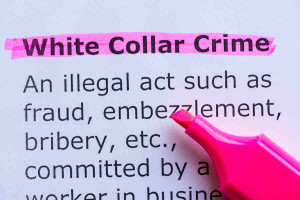 Forgery is a type of white-collar crime. There are several types of it that involve reproducing a signature, document, or any other item which is intended to deceive someone. If the item is passed along by an individual claiming that it is real or legitimate, that person could be liable for fraud.
Forgery is a type of white-collar crime. There are several types of it that involve reproducing a signature, document, or any other item which is intended to deceive someone. If the item is passed along by an individual claiming that it is real or legitimate, that person could be liable for fraud.
This type of crime involves things like creating and signing fraudulent checks for an active bank account. It can also involve reproducing another person’s signature on a legal document or committing credit card fraud. If a person is charged with the act, it is a felony. This type of crime can carry federal penalties which can be high.
Actionable Examples of Fraud
It can be difficult to reproduce documents in a court of law and prove that they are forged or fraudulent. Photocopying a document is not itself fraudulent or forgery. It is only if parts of the document have been altered to pass false information off as true. If the document can be shown to have a reproduced signature on it or a monetary amount was altered to benefit someone other than an account holder, it is fraud.
It is also considered fraud or forgery when checks or legal tender are counterfeited for profit. Creating these items and cashing them with the help of a third party as if they are genuine is fraud. This goes beyond a simple felony to becoming a federal crime. This carries a significantly higher punishment than ordinary felony crimes do.
Proving Fraud and Forgery in A Court of Law
If you are charged with fraud, you must retain the best criminal defense attorney possible. This is because this type of crime has so many nuances to it. There are many things that must be proven and defending yourself in court is one option you do not want to consider.
Proving forgery in court includes the process of reviewing all pieces of evidence against the totality of law. This involves inspecting signatures, all aspects of forged documents and every detail. This is done by experts who are trained in spotting any minuscule variance in the document proving it to be forged.
This is something difficult to defend against. Only an experienced criminal defense attorney can raise the best defenses in your favor.
Defenses to Forgery or Fraud
There are two defenses that must be proven by a criminal defense attorney to reduce or drop charges against you. The first is to show that you possessed no intent at the time the crime was committed to defraud anyone. If an attorney can prove that you believed that you were earnest when signing that check, the charges against you could be reduced if not dropped.
The second defense is regarding the document presented to the court. With this defense, the prosecution has to prove that the document was purposely created and altered in order to defraud someone of their rights, their money or their property. If this cannot be shown to the court’s satisfaction, the charges may be reduced or dropped.
Forgery Penalties in New York
In the State of New York, forgery in the first degree is a Class C felony. An individual convicted of first-degree forgery can face a prison sentence that cannot exceed 15 years, a fine not to exceed the higher of $5,000 or double the gain in the forgery. They may also face both prison and a fine. (N.Y. Penal Law § § 170.15, 70.00, 80.00.)
Do not hesitate for a moment if you have been charged with the crime of forgery. Get a professional criminal defense attorney on your side. Contact the Law Offices of Naiburg, Obedin, and Weissman right away. Get the assurance you will have the best defense possible, and call now.

